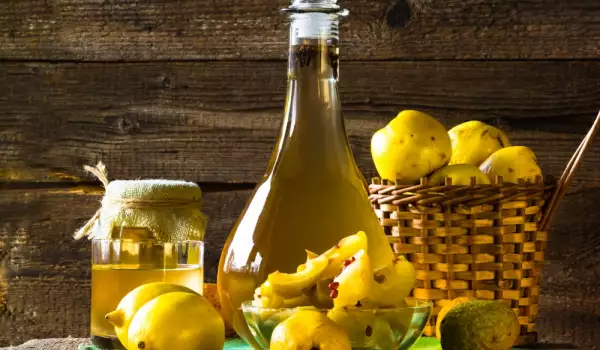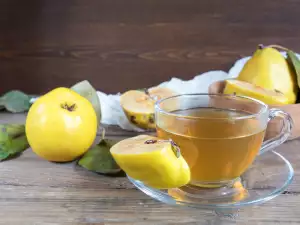The useful properties of quinces have been known to mankind since ancient times. It is believed that even the father of medicine, Hippocrates, recommended this fruit as a remedy for the gastrointestinal tract. Since quinces have a high content of tannins, they are usually used in folk medicine in the form of syrups and jellies.
Quinces are rich in fructose, glucose, pectin compounds, potassium, calcium, iron, phosphorus and copper. Even in their seeds there are a number of biologically active substances that have a beneficial effect on the body.
Quinces are not recommended for constipation and pleurisy, but quince compote and boiled quinces are extremely useful for people who suffer from stomach inflammations and digestive disorders.
Roasted or boiled quinces are a great antiemetic and the juice of ripe quinces is a natural antiseptic. It is especially recommended for people who suffer from respiratory diseases.
Thanks to the useful micro- and macroelements contained in quinces, quince syrup or tea is useful in combating cystitis, as well as severe asthma.
Asthma sufferers can drink quince seed decoction to improve their condition. Quince seeds must be boiled whole and not grinded, because they contain the poisonous substance amygdalin.
Also read how quinces are stored.



















Comments